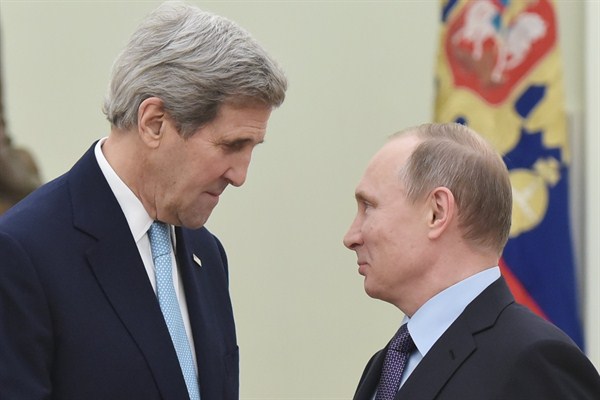What was your favorite diplomatic breakthrough of 2015? There were quite a few to choose from. For arms control experts, there was the nuclear deal with Iran. For trade specialists, there was the Trans-Pacific Partnership. For environmentalists, there was the COP21 Paris climate change agreement. Add in a few other noteworthy bargains, such as the Sustainable Development Goals, and 2015 was a bonanza year for international cooperation, at least in terms of pumping out diplomatic verbiage.
But the biggest diplomatic achievement of the past 12 months may have been the simple fact that Russia and the West avoided a return to a Cold War-style confrontation. Having set a collision course with the U.S. and Europe over Ukraine in 2014, Moscow repeatedly courted a further deterioration in relations. In January, it unleashed a brutal offensive by its proxies and covert forces in eastern Ukraine, ripping up previous cease-fire agreements in the process. In September, it launched its intervention in Syria, whipping up confusion in Western capitals over its intentions and, if independent reports are right, adopting a cavalier attitude to civilian deaths.
Both of these military gambles could have sparked a hard-line response from Western policymakers. In response to the January offensive in Ukraine, U.S. officials considered plans to arm Kiev, potentially precipitating a further escalation of the conflict. The Russian air campaign over Syria inevitably risked an unintentional clash with the parallel U.S.-led coalition bombing the self-declared Islamic State, a danger that proved real when Turkey shot down a Russian jet over its border in November.

